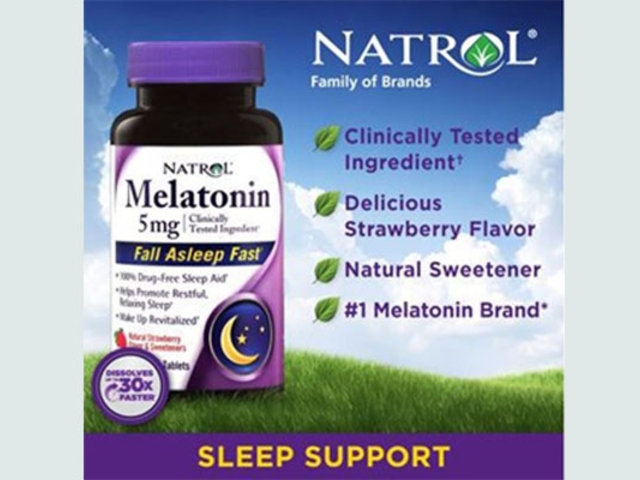Understanding Melatonin: The Basics
Before we delve deep into the world of melatonin, it's important to understand what it is. Melatonin is a hormone produced by the pineal gland in the brain. It's often referred to as the "sleep hormone," as it plays a vital role in controlling our sleep-wake cycle, also known as the circadian rhythm. The production and release of melatonin are affected by light exposure. When it gets dark, more melatonin is produced, signaling to our bodies that it's time to sleep.
The Rising Popularity of Melatonin Supplements
Nowadays, you've probably noticed an upsurge in the availability and use of melatonin supplements. They've become a popular natural solution for individuals struggling with sleep issues. Many people are turning to these supplements to help them fall asleep faster, stay asleep longer, and wake up feeling refreshed. Unlike many sleep medications, melatonin is non-habit forming and has fewer side effects, making it an attractive option.
How Melatonin Works in the Body
When you take a melatonin supplement, it travels through your bloodstream to your brain. There, it attaches to receptors that help control your sleep-wake cycle. By increasing the level of melatonin in your body, you're essentially signaling to your body that it's time for sleep. This can be particularly beneficial for those with disrupted sleep patterns, like shift workers or those suffering from jet lag.
Benefits of Melatonin Beyond Sleep
While melatonin is best known for its role in sleep, it also has other health benefits. Some research indicates that it may play a role in boosting the immune system, reducing symptoms of seasonal depression, and even slowing the aging process. It's also a powerful antioxidant, which means it could help protect your cells from damage.
Choosing the Right Melatonin Supplement
When it comes to selecting a melatonin supplement, it's not a one-size-fits-all situation. The right dosage for you can depend on various factors, including your age, sleep habits, and overall health. It's always a good idea to start with a low dose and gradually increase if necessary. Furthermore, look for a product that's pure melatonin without any added ingredients.
Common Side Effects of Melatonin
Like any supplement, melatonin isn't without potential side effects. Common side effects include headache, dizziness, and daytime sleepiness. However, these side effects are usually mild and go away on their own. If you experience any serious side effects, it's important to stop taking the supplement and consult with a healthcare professional.
Safe Use of Melatonin
While melatonin can be a helpful tool for improving sleep, it's important to use it safely and responsibly. You should always follow the recommended dosage and avoid combining it with alcohol or other sedatives. And remember, it's not a long-term solution. If you're having ongoing sleep problems, it's important to speak with a healthcare professional.
How to Naturally Boost Melatonin Production
If you're not quite ready to try a supplement, there are natural ways to increase your body's melatonin production. Good sleep hygiene is key. This includes maintaining a consistent sleep schedule, avoiding screens before bedtime, and making sure your bedroom is dark and quiet. Also, certain foods like tart cherries, milk, and nuts are known to boost melatonin levels.
Final Thoughts on Melatonin
In conclusion, melatonin is a natural, effective tool for improving sleep. Whether you're dealing with occasional sleeplessness or a more chronic issue, it could be worth considering. However, as with any supplement, it's important to use it responsibly and in consultation with a healthcare professional. Always make sure to listen to your body and adjust your usage accordingly.



Jessica Glass
July 2, 2023 AT 15:10Krishna Kranthi
July 2, 2023 AT 16:35Lilly Dillon
July 2, 2023 AT 21:20Shiv Sivaguru
July 3, 2023 AT 08:53Gavin McMurdo
July 4, 2023 AT 01:50Jesse Weinberger
July 4, 2023 AT 03:02Emilie Bronsard
July 5, 2023 AT 00:57John Bob
July 5, 2023 AT 04:49Alex Grizzell
July 5, 2023 AT 12:15George Johnson
July 6, 2023 AT 08:20Rodrigo Ferguson
July 6, 2023 AT 16:58Mickey Murray
July 7, 2023 AT 16:22